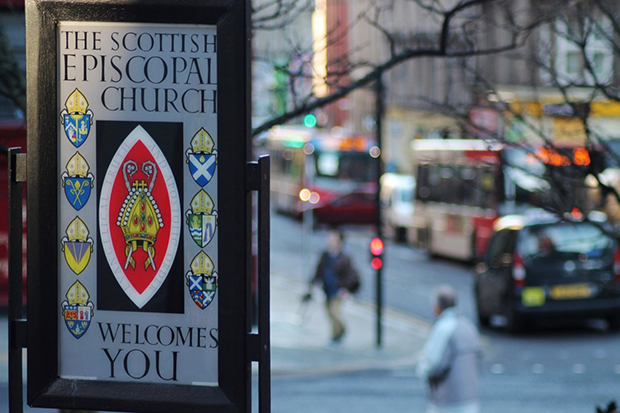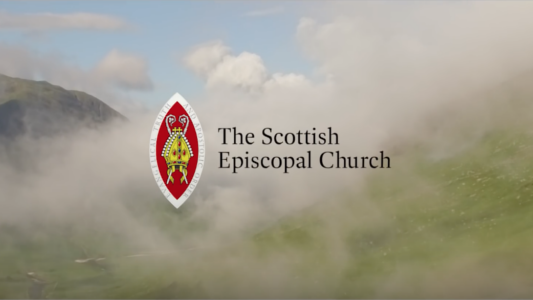Charges within the Scottish Episcopal Church will have submitted Annual Returns and, in most cases, a Supplementary Monitoring Returns to OSCR since 2007. OSCR has recently introduced a new Annual Return, applicable for charities with a financial year-end date on or after 30 November 2023. There is no longer a separate supplementary monitoring return, though charities with income of £500,000 or more have to provide some additional information. This note provides guidance on the completion of the new Return.
OSCR provides full details and guidance on how to use the OSCR online system for submitting the return. General guidance on submitting the online form is available at: OSCR | How to use OSCR Online to submit an online annual return. More specific guidance on completing the various sections of the return form is available at: OSCR | Annual return details and charity principal contact details.
When completing and submitting the Return a charge must have its accounts prepared, signed and independently examined in the usual way before the completion of the online Return form. Signed accounts can then either be scanned and attached to the online submission or be sent to OSCR in hard copy by post.
OSCR has issued charities with a unique username and password to allow them access to the system. It is important that procedures are in place by the Vestry to ensure that only authorised persons are allowed to amend and update the OSCR Online system prior to these changes being approved by the Vestry. It would also be good practice for Vestry members to obtain a copy of the information shown on the charity on the OSCR website on a regular basis.
Principal Contact
An email requesting the annual return is normally issued by OSCR around the end of the charity’s financial year end and is sent to the principal contact. In most cases the Vestry Treasurer or Vestry Secretary will be the principal contact. The charge must remember to advise OSCR of any changes in principal contact details and this can be by letter or completed online on the OSCR website.
You may also receive a Return for particular trusts or funds relating to your charge. These notes may not apply to such trusts or funds.
The deadline for submission of the Annual Return Form is nine months from the financial year end date.
Annual Return Form
The online Return should be “pre-populated” based on the data previously supplied to OSCR. The form also includes pop-up information at various points to assist in its completion.
Charity Contact Information
Please note that if the address provided to OSCR is that of a charity trustee that contact address will be published on the charity register unless there are exceptional circumstances where publishing this information could put premises or persons at risk.
Most questions in this section should be straightforward to answer but guidance is given below on some specific questions. The guidance is based on the return form in place as at the end of 2023. It is understood that OSCR may vary some questions in the form from year to year and so care should be taken in completing Returns for any period after 30 November 2024 to ensure that the guidance below relates to the actual questions appearing in future return forms.
Section A – Set Data
Question A2
Total number of trustees at financial year end: Trustees should be interpreted as Vestry members and will therefore normally include the Rector. (Whether the Secretary and Treasurer are members of the Vestry should be carefully considered and the position may vary from charge to charge. If such individuals play an actual role in the decision making of the Vestry or are involved in the general control and management of the administration of the charge’s affairs, they will be regarded as “charity trustees” and it against this criterion that the Vestry Treasurer and Vestry Secretary should be assessed.
Question A3
Total number of paid employees at the financial year end: this is based on a headcount at the accounting period year end and should include stipendiary clergy.
Question A4
How many people have volunteered for the charity in the previous financial year: we explained to OSCR that this is likely to be a difficult question particularly for larger churches to answer. In response to our representations, the form gives banded options for a response. In many churches, large numbers of the congregation volunteer for one role or another. Volunteers could include self-supporting clergy, lay readers, intercessors, those administering Holy Communion, welcomers, choir members, organists and musicians, those on coffee or flower rotas, pastoral visitors, children’s and youth leaders, those leading home or prayer groups, those involved in church projects such as food banks or other community initiatives etc but that is not an exhaustive list. The form states that the charity trustees should be excluded from the figure given in their capacity as charity trustees. So if a member of the Vestry volunteers in some other capacity, they should be included in the numbers. If an individual volunteers in a number of different capacities, they should be counted only once. The purpose of the banding is to avoid the need to provide a specific number, but it is suggested that the person completing the form should keep a note of the basis on which they arrived at the answer provided.
Section B – Financial Information
The form includes some guidance from OSCR on the answering of this section.
Question B3
Type of Accounts: Most charges are likely to have income below £250,000 (and will therefore normally prepare receipts and payments accounts) and should answer questions B3 (i) and (ii).
Question B3(ii)
Land and buildings: The OSCR form explains that this question only applies to Receipts and Payments accounts. It also explains that the answer to the question should include land and buildings which are held by persons on behalf of the charity, including trustees on behalf of an unincorporated association. In most cases title to heritable property such as church buildings, halls or rectories is held in the name of diocesan trustees on behalf of the charge. You should, therefore, list any such properties (postal address). The form also asks for the value of the properties “if possible”. Most church properties will not have been valued recently and OSCR does not insist on such a valuation. However you may wish to enter the insurance valuation, explaining that it is a valuation for insurance purposes.
Question B3 (iii)
If fully accrued accounts are prepared question B3(iii) should be answered but only if gross income less than £500,000. Where income exceeds £500,000 the form requires a breakdown of income and expenditure. The headings used are the same as used by the Charities SORP FRS 102 and so information should be easily extractable from the charge accounts. If an answer to a question is nil, blank or not applicable a single “0” should be inserted.
Section C – Organisational Awareness
Question C1
Charitable activity: as a minimum, the option “undertake religious activities” should be selected but other relevant options should also be included.
Charges are not normally involved in “campaigning” and unless there are good reasons for doing so, it is suggested that that option not be selected.
Question C2
Charitable activity: The principal purpose for which churches qualify as charities is “for the advancement of religion”. The SEC Model Constitution states that the charge’s charitable purposes are “for the advancement of religion and to provide public benefit”. It is recommended that the following wording would be appropriate for inclusion: We are part of the Scottish Episcopal Church. We offer regular public worship within the broad tradition of the Episcopal Church. We seek to live out the Christian gospel in our local community in love and service.
If any additional information is included in response to this question it should be consistent with what is said in the charity trustees’ annual report.
Question C3
The governing document is the charge constitution.
Question C5
Trustee induction: it is recommended that, as a minimum, new Vestry members be provided with a copy of the constitution and are referred to the guidance on the provincial website about Vestry responsibilities at: https://www.scotland.anglican.org/vestry-resources/vestry-responsibilities/
Question C6
Payments to charity trustees: whilst the question refers only to “payments”, the explanation given in the OSCR form also includes “benefits”. Reference should therefore be made to clergy stipend, the payment of pension contributions on behalf of clergy and the provision of tied housing where those matters apply. Any other benefits provided to members of the vestry (or those connected to them, as explained in the form) should also be disclosed. Reimbursement of out of pocket expenses should not be included.
Wording along the following lines (adapted for local use as necessary could be used): One of the Charity Trustees / The Chair of the Charity Trustees is the stipendiary priest with responsibility for pastoral oversight of the worshipping community at St XXXXX. In that capacity they received a stipend of xxxxx in the year. Pension contributions of xxxx were also paid on their behalf. As is the custom within the Scottish Episcopal Church they were provided with a house (rent free) and the associated Council Tax charge was paid by the charity.
Question C7
Charity structure: charges should select the option “neither of the above”. Previously, charges were recommended to refer to the General Synod of the Scottish Episcopal Church as their “parent charity”. This was because, in the early years following the establishment of OSCR, it provided OSCR with an alternative contact point where any difficulties arose in relation to a charge. However, in discussions with OSCR, we have agreed that charges should not regard the General Synod as their parent charity since that gives a misleading description of the legal position. Similarly, charges should not regard their diocese as their parent charity.
Question C8
Overseas activities: This section should not normally be applicable. Charges do not “operate” overseas and financial support sent to an overseas church, project or mission partner would not normally constitute overseas operation.
June 2024
The General Synod of the Scottish Episcopal Church does not accept responsibility for any loss or liability which may arise from reliance on information or expressions of opinion contained in this document.
General Synod of the Scottish Episcopal Church
Scottish Charity No SC015962







